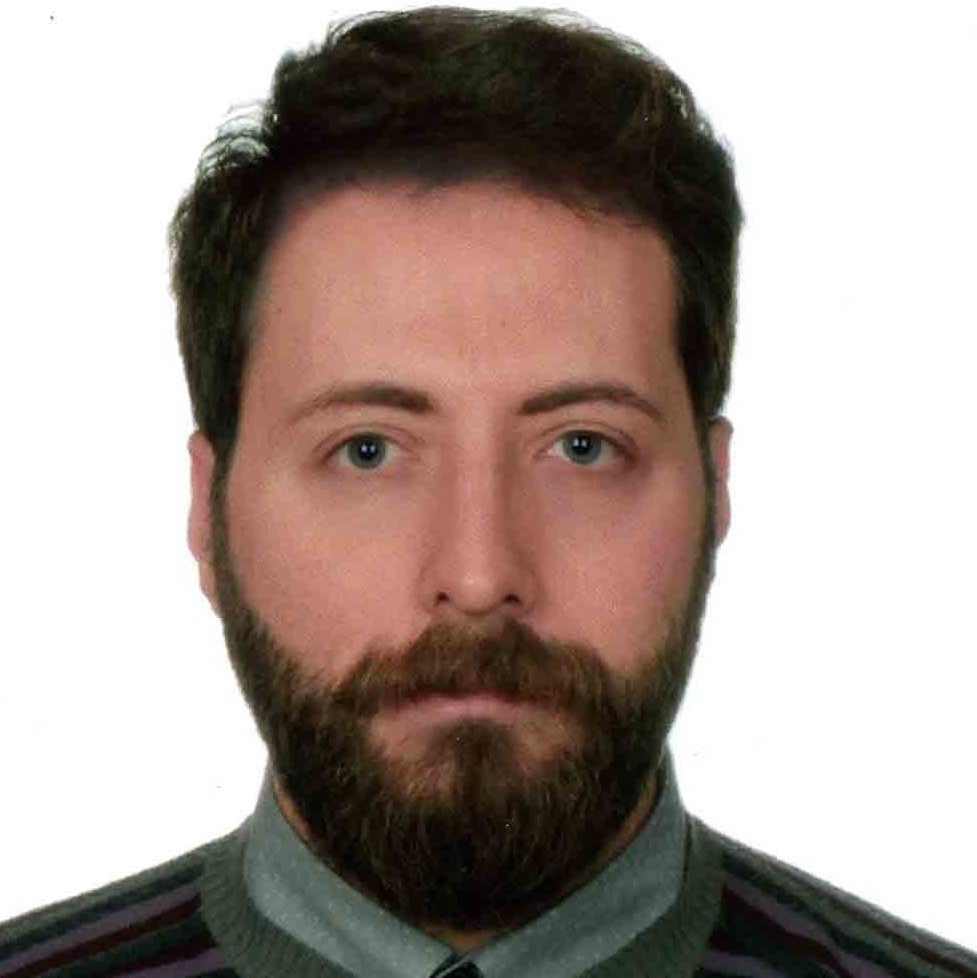Journal Boards
Editor-in-Chief

Emrah Konuralp is currently working as a postdoctoral researcher on right-wing populism at Humboldt University in Berlin. He is also an Associate Professor of Political Science at Iğdır University in Turkey. He was previously a faculty member in the Department of Political Science and International Relations at İstanbul Yeni Yüzyıl University for three years. He received his BS, MS, and PhD degrees in Political Science and Public Administration from Middle East Technical University in Ankara, Turkey. His research interests include gender politics, identity, theories of nationalism and ethnicity, secularization, comparative politics, Turkish politics, and the political economy of health. He has published articles on identity, multiculturalism, nationalism, post-secularism, and theories of the state. He is the Editor-in-Chief of the biannually published refereed journal on social sciences, Lectio Socialis.
Editors

Editorial Borad
Prof. Bistra Vassileva, PhD, CDMP works as Full Professor of Marketing at the University of Economics–Varna, Bulgaria. Since 1992 she is lecturing and consulting in the field of Marketing Research, International Marketing, Marketing Communications, International Marketing Management, Digital Marketing. Bistra Vassileva was a visiting professor in Portugal, France, Germany, Spain, UK and a guest lecturer in Belgium. She implemented more than 12 international and national projects of different donors. During the last few years she took part in EU funded projects for various research issues and problems as an expert. She was a Marie Currie fellowship holder as a Senior researcher in 2007-2008 in Lodz, Poland. Member of CIM, ESOMAR and EMAC. Prof. Bistra Vassileva is a Vice Rector for Research, Innovation, and Professional Development.
Zijad Džafić is a Full Professor of Economics at the Faculty of Economics, University of Tuzla, located in the third-largest city in Bosnia and Herzegovina. He has over twenty years of experience in academia and has held the title of Full Professor since February 2017. Prior to this appointment, he served as Associate Professor and Assistant Professor in the field of Economic Theory and Policy.
He completed a postgraduate specialization in Italy and gained international academic experience through the Erasmus program at the University of Graz in Austria. He also participated in academic study visits to the University of Vienna and the University of Leoben.
His teaching and research interests include microeconomics, the economics of entrepreneurship, sustainable development economics, and the history of economic thought. From 2010 to 2014, he served as Vice-Dean for Research and Science at the Faculty of Economics.
Professor Džafić is the author or co-author of five books and has published more than seventy scientific and professional articles in peer-reviewed journals and conference proceedings. He has presented his work at numerous national and international conferences. He has supervised fifteen master’s theses and four doctoral dissertations, and has acted as a principal investigator or team member in eight scientific research projects.
In addition to his academic work, he has served as editor for several scientific conference proceedings. He currently holds the position of Editor-in-Chief of Economic Review – Journal of Economic and Business, an academic journal published by the Faculty of Economics at the University of Tuzla.
Prof. Dr. Emre Erdoğan is a political scientist specializing in international relations and Turkish politics. He is currently a Professor in the Department of International Relations at the Faculty of Social and Human Sciences at Istanbul Bilgi University, a position he has held since 2019.
He earned his Ph.D. in Political Science and International Relations from Boğaziçi University in 2001. His dissertation, titled "Between Exit and Loyalty: The Dealignment and Realignment in the Turkish Party System", was supervised by Prof. Dr. Ali Çarkoğlu. He completed his undergraduate studies in Political Science and International Relations at Boğaziçi University in 1995.
Prof. Erdoğan began his academic career at Istanbul Bilgi University, where he served as a lecturer in the Department of International Relations from 2005 to 2015. He also held a part-time teaching position at Boğaziçi University between 2012 and 2015. He was promoted to Associate Professor at Istanbul Bilgi University in 2015 and subsequently to Full Professor in 2019.
In addition to his teaching and research activities, Prof. Erdoğan has held various administrative roles. He served as Chair of the Department of International Relations at Istanbul Bilgi University from 2018 to 2022 and as Vice Chair between 2016 and 2017.
He is also the editor of Reflektif: Journal of Social Sciences, a peer-reviewed academic journal focusing on contemporary political and social issues.
His research interests include Turkish political parties, electoral behavior, political polarization, and public opinion. He continues to contribute to academic and public debates through his teaching, research, editorial work, and public engagement.
Professor Nilufer Narli holds a degree in Education with a major in Philosophy and minor in Sociology; and MSc in Humanities with a major in Logic, the Philosophy of Science and Philosophy from the Middle Eastern Technical University, Ankara, Turkey. She holds a PhD in Social Sciences with a major in Political Sociology from the School of Comparative Social Sciences, University Sains Malaysia. Prof. Narli’s topics of interest in research and teaching include the following: Islamist movements in the Middle East and Southeast Asia; political participation of Muslim women; irregular migration (including human smuggling and trafficking) in the Middle East and the Balkans; EU Harmonization Reforms: military and good governance in Turkey; political memory in Turkey; and Syrian crisis and gender. Narli has a strong background in cooperation with the European Union and USA research institutions. Prof. Narli was selected as an Eisenhower Fellow from Turkey in 1993. She was granted Best of Middle East Research Fund by the Ford Foundation in 1992. She was a visiting scholar at the University of Maryland in the summer of 2007.
Michalis N. Michael was born in Cyprus and obtained a BA in Turkish Studies (1996) from the University of Cyprus (Department of Turkish and Middle Eastern Studies). He received his MA (1998) from the University of Crete (Department of History and Archaeology), University of Crete (Greece) and his PhD (2004) from the University of Cyprus (Department of Turkish and Middle Eastern Studies). He is the author of the books: The Church of Cyprus during the Ottoman period: The Gradual Formation of an Institution of Political Power (Cyprus Research Centre, Nicosia 2005, in Greek). Revolts as a Field of Power Negotiation. Ottoman Cyprus, 1804-1841 (Alexandreia, Athens 2016, in Greek) and the co-editor of Ottoman Cyprus. A Collection of Studies on History and Culture (Harrassovitz Verlag, Wiesbaden 2009), The Archbishop’s of Cyprus in the Modern Age: The Changing Role of the Archbishop-Ethnarch, their Identities and Politics (Cambridge Scholars Publishing, London 2013), Religious Communities and Modern Statehood: the Ottoman and Post-ottoman World at the Age of Nationalism and Colonialism (Klaus Schwarz Verlag, Berlin 2015), Studies on Ottoman Nicosia. From the Ottoman Conquest to the Early British Period (Isis Press, Istanbul 2019) and the editor of the special issues of the Archivum Ottomanicum, 32 (2015), 36 (2019). He has published articles in Archivum Ottomanicum (2009, 2012, 2015, 2019), Chronos (2010, 2014, 2019), Social Compass (2009), Religions (2010), Thetis (2009), Historica (2005, 2007, 2009), Turkish Historical Review (2011), International Review of Turkish Studies (2013), Osmanlı Tarihi Araştırma ve Uygulama Merkezi Dergisi (2013), The Cyprus Review (2015), and has chapters in several books (Nationalism in the Troubled Triangle: Cyprus, Greece and Turkey (Palgrave Macmillan, London 2010), Cries and Whispers in Karamanlidika Books (Harrassowitz, Wiesbaden 2010), The Archbishop’s of Cyprus in the Modern Age: The Changing Role of the Archbishop-Ethnarch, their Identities and Politics (Cambridge Scholars Publishing, London 2013), Histories of Ottoman Larnaca (National Research Foundation, Athens 2012), Visions, Vows and Wonders: Religion and the Sea in the Eastern Mediterranean, 15th-19th centuries (Brill, Leiden 2020 – forthcoming). He is an Associate Professor of Ottoman History at the Department of Turkish and Middle Eastern Studies in the University of Cyprus.
Malehoko Tshoaedi is an associate professor in the department of Sociology at the University of Johannesburg. She is the Head of Department of Sociology at the university of Johannesburg. She holds a PhD in Political Science and Gender studies from the University of Leiden, the Netherlands. She is an NRF Rated researcher. Her research interests include labour movements and gender in the workplace; black women’s biographies, feminist and decolonial methodologies. She is the co-editor of the Taking Democracy Series (Wits Press). The books published in this series include Labour Beyond Cosatu: Mapping the Rupture in South Africa’s Labour Landscape; and Labour Disrupted: Reflections on the Future of Work in South Africa (Wits University Press: Johannesburg). She is also the co-editor of The Fourth Industrial Revolution: A sociological Critique. Jacana Media: Auckland Park.
Igor Torbakov is a Senior Fellow at the Institute for Russian and Eurasian Studies at Uppsala University. A trained historian, he specializes in Russian and Eurasian history and politics. His recent publications discuss the history of Russian nationalism, Russian-Ukrainian relations, the links between Russia’s domestic politics and foreign policy, Russia’s and Turkey’s geopolitical discourses, and the politics of history and memory wars in Eastern Europe.
Kezia Batisai is a Professor of Sociology. Focusing her research gaze on gender, sexuality, land, migration, HIV/AIDS and health policy recommendations, Kezia’s work questions the meaning of being different and notions of marginality that expose the politics of nation-building in Africa. Kezia has written several journal articles, book chapters, technical reports and opinion pieces that expand the theory of marginality. Beyond the academy, Kezia has engaged in action research as a principal researcher for local and international organizations working with those on the margins or peripheries of society, with a specific focus on gender, sexuality, migration, HIV/AIDS and health policy recommendations. She is an active member of the International Sociological Association; South African Association for Gender Studies; South African Sociological Association (convener for Gender Studies working group since 2015); and the Research Network Law, Gender and Sexuality (LEX) International Steering Committee. She also serves on the editorial board of a new Bristol University Press journal, Gender and Justice; and a member of a newly established Ban Ki-moon Centre’s expert council named “EVWA Council” – Elevating the Voices of Women in Agriculture.
Ph.D. and M.A. Political Science, Florida International University; M.A. Modern Turkish History, Boğaziçi University; B.A. Political Science and International Relations, Boğaziçi University.
Dr. Selçuk joined Luther College in 2019. He teaches Global Politics, Developing Democracies, Latin American Politics, and Research Methods. He is also the faculty adviser to Luther Model United Nations and International Students & Allies student clubs.
Dr. Selçuk’s research broadly focuses on populism, polarization, and democratization from a cross-regional perspective. Out of his research on Turkey and Latin America, he published in Southeast European and Black Sea Studies, Democratization, Insight Turkey, ASMEA Book Notes, the Monkey Cage and the Miami Herald.
Lectio Socialis is a prestigious, international, and peer-reviewed journal that aims to provide a platform for scholars and researchers to share their work and ideas on policy-relevant topics related to social sciences. The journal welcomes high-quality articles from a wide range of disciplines, including economics, political science, public administration, business administration, international relations, urban planning, sociology, psychology, history, jurisprudence, and philosophy. The primary objective of Lectio Socialis is to maintain a vibrant, independent, and unbiased environment for scholars and researchers from different parts of the world to present their research, exchange ideas, and contribute to the advancement of knowledge in their respective fields.







